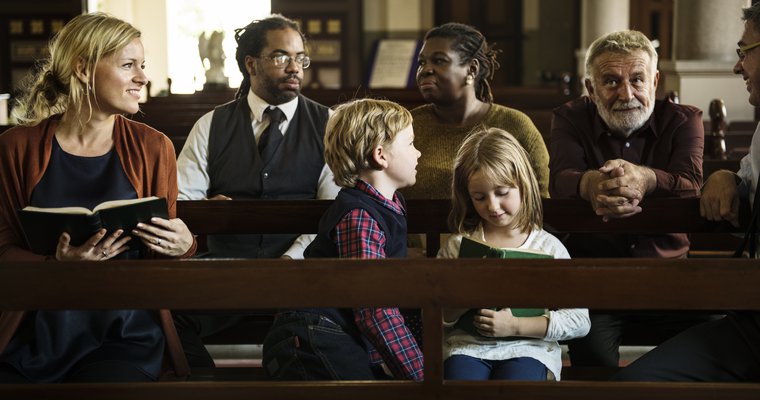Post-pandemic digital worship strategies
 iStock
iStock
 ChatGPT
ChatGPTWhat day did everything change for your church or ministry? March 12, 2020 was the last time I had a face-to-face meeting with a client. Everything moved online after that. For many churches, March 7 or 14 was their last time for regular, in-person, unrestricted worship services. In a matter of days, they switched to online offerings. Then over the following weeks, they purchased equipment and made a variety of adjustments to improve digital quality.
Eleven months later, we face different questions. We don't know an exact date, but we can foresee the time when it will be safe for people to gather indoors for worship, sitting side-by-side without masks. I don't know of any church that plans to discontinue their online worship at that point in time. But have you defined your post-pandemic digital strategy?
The specific details for your future online offerings should be dictated by an overall philosophy. Here are three possibilities:
1. Online as second choice.This philosophy emphasizes that gathering in-person whenever possible is the first choice. Online is seen primarily as an offering for church members who are unable to attend, due to illness, travel, or work schedules. The expectations for quality and the amount of additional programming are lowest with this approach.
2. Online as the front door.This philosophy also seeks to move people to an on-site experience, but it sees a church's digital presence as an essential way to reach new people. The assumption is that newcomers will linger in the ease and safety of online before setting foot on campus. Therefore quality online content (worship and more) is needed in addition to the church's web site and social media presence.
3. Online as a unique community. This option is based on a belief that a number of people will prefer online over in-person and will choose a church that meets their desire. High quality is also essential in this approach, and the need for additional non-worship content is elevated. Staffing will need to reflect this level of commitment. Churches operating under this model will explore ways to build community and disciple people who are online only.
In the first option, worship may be experienced through the lens of a camera in the back of a sanctuary. The online participant is an invisible presence looking over the shoulders of the people who are on-site. The second option increases production quality with better camera angles or the use of multiple cameras. Just as importantly, active efforts will be made to connect with online worshippers, especially visitors, and invite them to on-site worship and programming. The online worship experience may be very similar In the third option, but the invitation will focus on digital programs such as an online small group or Bible study.
These three philosophies are distinct, but they are not mutually exclusive. Resource requirements – staff, funding, and more – are lowest for the first option, and highest for third one. One is not better than another. But leaders need to be clear about which path they are pursuing and then align programming and resources accordingly. Which digital strategy is right for your church?
Mike Bonem is an author, consultant, speaker, church leader, businessperson, husband and father. He has an MBA from Harvard Business School and a breadth of experience in ministry and business, including 11 years as an executive pastor, consulting with Fortune 100 companies, and leading a start-up business. This article was first published on MikeBonem.com. Used with permission. Learn More » |
More on COVID-19
- An easy way to gauge your church's growth and decline (by Thom Rainer)
- 20 of the most difficult things pastors have done in their job (by Thom Rainer)
- What's your thought process for the new year? (by Rob Streetman)
- 5 major developments for small churches (by Thom Rainer)


